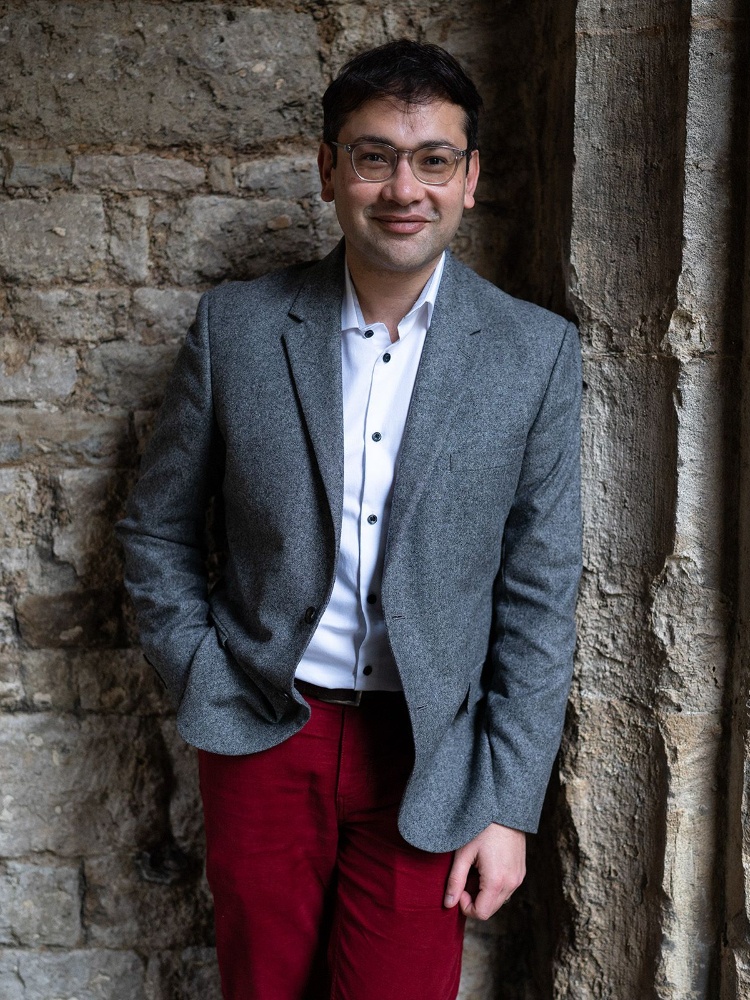“I always liked writing,” novelist Santanu Bhattacharya tells me from the cloistered workspace of his house in Islington, London, as we connect over Zoom. Bhattacharya, who grew up in the ’90s, has already won the 2023 Desmond Elliott Prize Residency, the 2021 Mo Siewcharran Prize, and The Observer’s Best Debut Novel award in 2023 for his maiden work, One Small Voice. Typical of his writerly ways, the wall behind him is stacked with an envious collection of paperback titles. But the shelves are also lined with smaller totems—a colourfully irreverent canvas with the Eiffel Tower and stray silver frames with monochrome portraits. Fresh off a trip to Italy to celebrate a friend’s birthday and still reeling from the overwhelming response being received by his sophomore title, Deviants (released earlier this year in February), Bhattacharya exudes a strange calm. As we chat, his almost meditative and matter-of-fact demeanour explains his zen vibe in the midst of all the acclaim and fame.
Bhattacharya’s journey from an Engineering graduate in Sikkim to an award-winning novelist in London is one rooted in exploration, transformation, and a deep commitment to telling stories that matter. “I’d won prizes in school [for writing],” he says in his grey round-neck T-shirt, “and every time I read a good book, I’d feel inspired to add my own words to the canon,” he says. Moving to the UK in 2013 for a Master’s in Public Policy at Oxford, Bhattacharya transitioned to London soon after. But throughout these pitstops, another quieter aspiration persisted: the call of the writer.
Although this ambition was often relegated to the margins, Bhattacharya kept a blog, dabbled in short stories, and eventually dusted off a 25,000-word draft in 2017 that would become One Small Voice. “It was a hobby until I finished the first draft of the novel, after which I said this is something,” he chuckles. His sophomore novel, Deviants, pushes further—both in form and scope. Spanning three generations, it unpacks queerness, shame, and digital identity in contemporary and historical India.
“I was interested in the silent, behind-closed-doors existence of queer men from the previous generation. And then, when I returned to India in 2023,” he shares, “I met younger queer people whose lives had been shaped by a completely different digital landscape.”
These contrasting experiences compelled him to structure Deviants around three characters: each a snapshot of a different era’s relationship with queerness. Vivaan, a modern-day teenager leading a risqué life of queer desire in the digital sphere; Mambro, his uncle, who fell in love with a classmate 30 years ago during the repressive enforcement of Section 377 of the Indian Penal Code; and finally Sukumar, Mambro’s uncle, who too fell hopelessly in love with a man—only to keep it a secret all his life.









